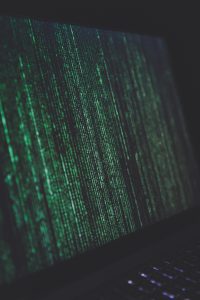 The internet is a mixed blessing from a legal point of view. On one hand, it can open up opportunities for trade beyond anything that we have ever seen. On the other hand, it opens up the possibility for some modern crimes such as wire fraud in Chicago. It is important to note that this is a federal offense, even if the local law enforcement agencies in Chicago may be involved in the prosecution process. A conviction can lead to significant fines and a long term of imprisonment (see the Alan Gold case). The courts respond to public outcries about white collar crime defendants who are able to get away with large scale offenses and yet the judges are limited by sentencing guidelines from imposing the harshest terms of imprisonment.
The internet is a mixed blessing from a legal point of view. On one hand, it can open up opportunities for trade beyond anything that we have ever seen. On the other hand, it opens up the possibility for some modern crimes such as wire fraud in Chicago. It is important to note that this is a federal offense, even if the local law enforcement agencies in Chicago may be involved in the prosecution process. A conviction can lead to significant fines and a long term of imprisonment (see the Alan Gold case). The courts respond to public outcries about white collar crime defendants who are able to get away with large scale offenses and yet the judges are limited by sentencing guidelines from imposing the harshest terms of imprisonment.
Special circumstances apply if the crime is committed against a financial institution, thereby denting public confidence in the system. In such cases, the defendant may be sent to jail for up to 30 years. The lengthy investigative process has sometimes been associated with an enhanced flight risk. Therefore; the defending attorney will have to address issues of bail quite early on. Then comes the long investigative process during which the facts themselves might appear to be overwhelming the case. The prosecutor will be able to ask for a number of documents and witness statements under court order. The defense will also ask for documents to examine substantive and procedural defects in the prosecution’s case.
Moving to Discovery
 Chicago Criminal Lawyer Blog
Chicago Criminal Lawyer Blog











